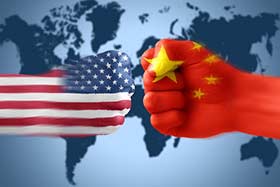US blind to Latin America
But it's not just a matter of sheer numbers. Unlike American trade treaties or the finance from international financial institutions largely under US control, China offers its loans with few strings attached.
In a region that is understandably very sensitive to any notions of conditionality because of the painful experiences with the International Monetary Fund and the World Bank, China makes sure that its policy is not based on conditionalities. That said, China doesn't lack a strong commercial focus. Often, it provides a tied offer - requiring that Chinese companies be hired to conduct a bulk of the envisioned project work.
What's more, the US offer of a TPP to all of the Latin American countries in the TPP process doesn't amount to much in the real world, for they already have trade treaties with the US that grant them access to the US market.
In just a few years, China has become the largest (in the case of Brazil and Chile) or the second-largest trading partner (of Peru and Mexico) of Latin American countries. And they aren't just any countries. They are the most important economies in Latin America.
Of course, the US is still the most important economic partner in the region. But it cannot continue to take the region for granted.
For too long, the US has relied on a rather imperial mechanism - just telling Latin America (and the Caribbean) what it needs. Compare that with China's approach: It offers the region what it wants (in the form of financing and trade).
When Obama entered the White House, he and his team pledged to hit the reset button on Latin America and rethink its trade regime with the region. It hasn't worked out that way. Thus far, "reset" has essentially meant making the same old offer, but through new faces.
In addition, too much interaction with regional governments has been on such efforts as concentrating on drug interdiction purposes. These countries rightfully don't see that as much of a growth-enhancing development approach, but rather as a foreign-based, defensive mechanism to protect the US homeland.
Given all that, it is high time for the US government to rethink its economic policy toward Latin America and the Caribbean.
The author is a professor of international relations at Boston University and a research fellow at the Global Development and Environment Institute.





















